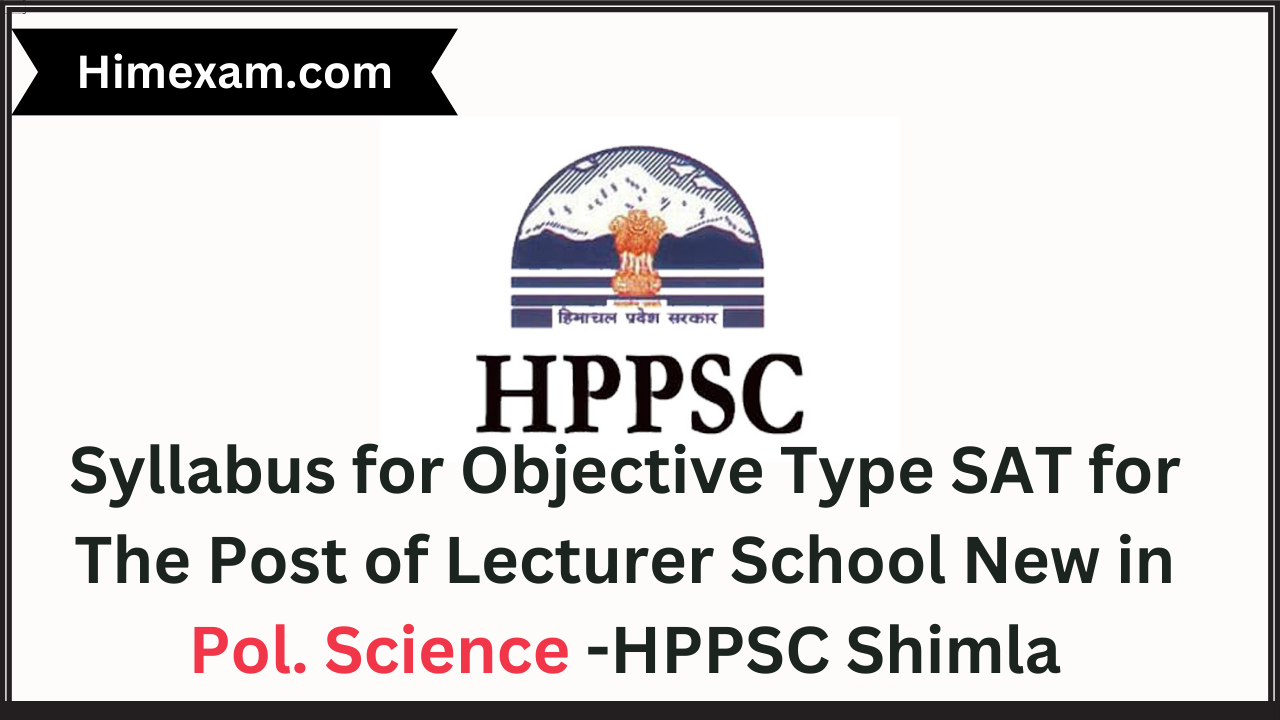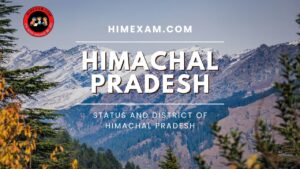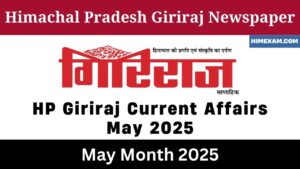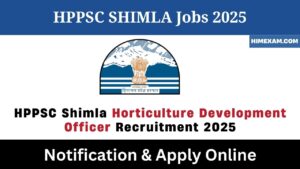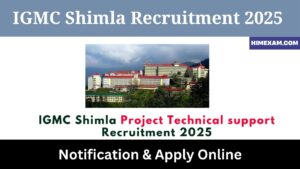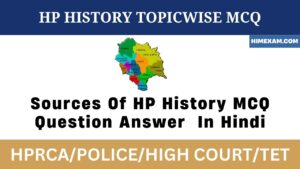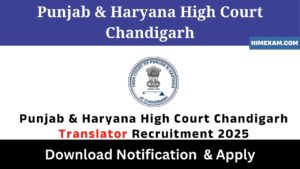Syllabus for Objective Type SAT for The Post of Lecturer School New in Political Science -HPPSC Shimla
SYLLABUS FOR OBJECTIVE TYPE SUBJECT APTITUDE TEST (SAT) FOR RECRUITMENT TO POSTS OF LECTURER (SCHOOL NEW) IN POLITICAL SCIENCE, CLASS-III IN THE DEPARTMENT OF HIGHER EDUCATION. THIS PAPER WILL BE OF 02 HOURS DURATION OF 100 MARKS. THE OBJECTIVE TYPE SUBJECT APTITUDE TEST (SAT) SHALL COVER FOLLOWING TOPICS.
Syllabus for Objective Type SAT for The Post of Lecturer School New in Political Science -HPPSC Shimla
PART-I (Subject) 80 marks
1.Western Political Thinkers
Plato (Justice, Communism and Philosopher King), Aristotle (Aristotle’s Critique of Plato. Slavery, Property, Revolution and Maintaining Constitutional Stability), Machiavelli (Machiavelli’s Humanism and Statecraft), Thomas Hobbes (Human Nature, State of nature, Social Contract, Hobbesasan Individualist and Absolutist), John Locke (Social Contract and Locke as a Liberal Philosopher) and Rousseau (General Will and Critique of Civil Society), John Stuart Mill (Liberty and Representative Government, Subjection of Women), Jeremy Bentham (Utilitarianism), Immanuel Kant (Cosmopolitanism, Enlightenment), George Wilhelm Friedrich Hegel (Civil Society and State: Views on Individual and Freedom), Karl Marx (Marxon Alienation and Historical Materialism), Hannah Arendt (Political Action and Ideas of the Social), Jurgen Habermas (Theory of Communicative Action and Public Sphere), John Rawls (Theory of Justice and Political Liberalism), Michel Foucault (Genealogy of Power and Its Relation to Knowledge and Truth).
2. Comparative Politics: Approaches and Processes Evolution, Meaning, Nature and Scope of Comparative Politics, Comparative Methods and its Limitations, Approaches to Study Comparative Politics: (i)Traditional Approaches: Historical Approach, Constitutional Legal Approach, Institutional Approach; (ii) Modern Approaches: Systems Approach, Structural Functional Approach, Marxist Approach, Political Economy Approach, New Institutionalism, Classification of Political Systems: Meaning of Political System and its Typologies, Democratic Political Systems: Liberal democratic, Electoral, Majoritarian, Participatory, Non-Democratic: Authoritarian, Totalitarian, Military Dictatorship, Political Parties and Pressure Groups: Evolution, Meaning, Nature and Functioning Strategies of Political Parties, Comparative Study of support base of Political Parties of U.K, U.S.A. and India, Meaning and role of Pressure groups in Political systems, Pressure Groups in India, Political Processes: Political Participation:- Its Meaning and Importance, Forms of Political Participation in U.K, USA, and India, Voting Behaviour and its Determinants, Patterns of Voting Behaviour in India, USA and UK.
3. Theories and Concepts of International Relations Introduction: Meaning, Nature, Evolution, Scope and Significance, The Great Debates: IdealismRealism; Realism-Liberalism; Neo-realism-Neo-liberalism, Theory of Idealism: Assumption of Human Behaviour, Foundation of Idealism in IR, Origins of Idealism, Core Principle and Form, Criticism of the School, Realism: Its Variants and Complements, Structural Realism, Indian Tradition: Kautilya’s Real politik, Neo-Realism, Neo-Liberal Institutionalism, The English School, Alternative Approaches in IR, Critical Theory, Constructivism, Post-Modernism, Feminism, Concept: State, Power, National Interest, Security: Traditional and Non-Traditional.
4. Indian Politics: Political Institutions & Processes, Making of the Indian Constitution: Colonial Legacy and the Contribution of Indian National Movement to the Making of the Indian Constitution, Constituent Assembly: Composition, Ideological Moorings: Constitutional Debates, Philosophy of the Constitution: Preamble, Fundamental Rights, Directive Principles of State Policy, Union Executive: President, Prime Minister and Council of Ministers, Union Parliament: Structure, Role and Functions, Judiciary: Supreme Court, High Court, Judicial Review, Judicial Activism, Federalism in India: Strong Centre Framework, Asymmetrical Federal Provision: Article 370, Article 371, V and VI Schedule, Intergovernmental Bodies: NITI Aayog, Inter-State Council, Finance Commission, National Integration Council, Election Commission of India, Electoral Reforms, Constitutional Bodies: National Commission for SC and National Commission for ST, Statutory Bodies: National Commission for Human Rights, National Commission for Women. Approaches to the Study of Political Processes: Legal-Institutional, Sociological and Political Economy, Historical Legacies: Colonial and Post-Colonial, State in India: Nationalist Imagination, Politics of Identity: Caste and Tribe, Politics of Language and Region, Gender and Politics: Women Movement, Agrarian Development Policy, New Economic Policy: Social and Economic Implications, State and Welfare: MNREGA, JNNURM, Electoral Politics: Participation, Contestation, Representation, Ideology and Social Basis of Political Parties: Congress and BJP, Ideology and Social Basic of State Parties: SAD and National Conference.
5. Contemporary Debates in Political Theory: Nature and Significance of Political Theory, Major Schools (Classical, Liberal, Marxist, Empirical Scientific and Contemporary), Debate about the Decline and Resurgence of Political theory, Historicism (Meaning, Debates and Karl Popper’s critique), Positivism: August Comte’s ideas, Logical Positivism and Critique of Positivism, Libertarianism and Communitarianism, Marxism and Neo Marxism, Post Modernism and Multiculturalism, Environmentalism and Eco-feminism Structuralism and Post Structuralism, Orientalism and Existentialism.
6. India and the Changing World World Power Structure: Evolution and Trends, National Interest and National Power, Diplomacy: Concept, Types and Nature, War: Meaning, Nature and Types, Foreign Policy of India: Historical and Cultural Roots, Continuity and Change: Principal Phases of Indian Foreign Policy, Determinant of Policy Making, India and Non-Alignment Movement, NAM and its Contemporary Relevance, India and South Asia: India and Pakistan, India and Bangladesh, India and Sri Lanka, India and Nepal, India and the changing World Order: Foreign Policy and the Changing World Order, End of Bipolarity, Unipolarity and the Emerging Patterns of Global Order, The Changing Environment: Nuclear Non-proliferation, Terrorism and Outer Space, India as an Emerging Power: India and the US, EU and Russia, India’s Relations with China and South-East Asia, India and the UN,WTO, IMF, IBRD, ADB, India as a New Global Economic Power. India’s world view in the Post-Cold war era, India and IBSA and BRICS: A Political economy perspective, India as an Emerging Power: Strengths and Challenges, India’s Policy towards US and China, India’s Policy Perspective on Asia: India’s South Asia Policy: Bilateral and Multilateral perspectives, India’s Policy shift from Look East to Act East, Changing Contours of India’s West Asia Policy, India’s Policy towards Central Asia, India and Global Issues: India’s Nuclear Policy: Quest for Energy Security, India and Geopolitics of Indian Ocean, India and Politics on Climate Change, India and Water Disputes, Bretton Woods System: IMF, World Bank and WTO, India and the WTO, India and Politics on Climate Change.
7. International and Regional Organisations International Organisation: Concepts and Evolution Trajectory, Theoretical Approaches to the Study of International Organization: Classical, Neo-Realist, Functionalist, Conflict Resolution, World Society Approach and the Marxist Approach, The United Nations: Formation, Aims ,Objectives, Structure and Major Specialized Agencies, United Nations and Maintenance of International Peace and Security, Collective Security and Its Alternative, United Nations and Sustainable Development Goals, United Nations and Peace-Keeping Operations, Need for Reforms in the United Nations. Regional Organisations: Concept, Factors of Regionalisation, Major Regional Organisations: SAARC: Role and Major Challenges, European Union: European Integration, Evolution, Formation of European Union, Common Foreign and Security Policy, Present Challenges, ASEAN: History, Facts and Relevance, SCO: Role Relevance and Impact of Sino-Russian Relations State Politics in India with Special Reference to Himachal Pradesh State Politics: Concept, Nature and Scope, Approaches to Study State Politics: Myron Weiner and Iqbal Narain, Need and Significance of State Politics, Democratic Movement in Himachal Pradesh with Special Reference to Praja Mandal, Emergence of Himachal Pradesh: Part C State to Full Fledged State, Political Geography (Old Himachal and New Himachal), Administrative set-up of the State Himachal Pradesh, Post-Statehood Politics of Himachal Pradesh: Problem of Regionalism and Sub-Regionalism, Electoral Politics, Voting Behaviour and Party System in Himachal Pradesh, Identity Politics in Himachal Pradesh with Special Reference to Caste, Tribe and Gender, Political Economy of Himachal Pradesh with Special Reference to Horticulture, Agriculture, and Tourism, Impact of Information Technology in Himachal Pradesh: E-governance, Power Projects, Mining and Environment Issues, Grass-root Politics in Himachal Pradesh after 73rd and 74th Constitutional Amendment.
8. Public Administration, Indian Administration & Public Policy and Governance in India: Public Administration: Evolution, Meaning, Nature and Scope; Ecology of Public Administration; Politics Administration Dichotomy; New Public Administration; New Public Management; Principles of Organization: Hierarchy, Span of Control, Centralization & Decentralization; Chief Executive: Presidential, Parliamentary and Collegiate; Classical and Human Relations Theories of Public Administration; Theories of Leadership: Traits, Behavioural, Situational & Eclectic; Theories of Motivation: Maslow, Herzberg and McGregor; Bureaucracy- Concept and Weberian Perspective; Civil Services-Recruitment, Training, Promotion and Civil Service Neutrality; Budget-Concept, Formulation & Execution: Parliamentary Control over Public Finance-Legislature, Committees & CAG. Indian Administration: Evolution & Features; Civil Secretariat-Meaning, Functions & Role; Cabinet SecretariatComposition and Working; Ministries & Departments-Home Affairs, Finance, External Affairs and Defence; Role of Governor, Chief Minister & Council of Ministers in Administration; Administrative Structures-Role and Responsibilities of Chief Secretary, Secretaries & Directorates; District Administration, Hierarchy, Importance and Changing Role of District Collector; Local Administration-PRIs & Municipal Bodies; Relationship between Political & Permanent Executive; Generalists Vs Specialists; Clean Administration-Administrative Reforms, Citizens and Redressal of their Grievances; Good Governance Initiatives & Indian Model of Ombudsman: Lokpal and Lokayuktas; Impact of LPG Reforms on Indian Administration. Public Policy: Concept, Nature and Scope, Role of Public Policy in Socio-Economic Development, Policy Making Process, Approaches to Study the Public Policy: Rational Choice Approach, Incremental Model and Public Choice Theory, Condition for making a Public Policy: Internal and External, Gender issues and Public Policy, Governance: Concept and Models, E-Governance and Public Administration: Role of State, Civil Society and Individuals, Accountability and Institutional Mechanism of Control, Corruption and Anti-Corruption Bodies: Ombudsman, Lokpal and Lokayukta, Bureaucracy and Governance, Governance Issues and Challenges.
9. Modern Indian Political Thinkers Dayananda Saraswati: Monotheism and Indian Nationalism, Balgangadhar Tilak: Concept of Swaraj, Vivekananda: Ideas on Nationalism, Freedom and Social Philosophy, Aurobindo Ghosh: On Nationalism, Ideal of Human Unity, Aurobindo’s Critique of Reason, Views on Freedom, Mahatma Gandhi: Ends and Means, Religion and Politics, Trusteeship, Hind Swaraj, Sardar Vallabhbhai Patel: National Integration and Service, V. D. Savakar: Interpretation of Indian History, Concept of Hindutva, Jawaharlal Nehru: Concept of Democratic Socialism, Concept of Secularism, Nehru’s Model of Nation Building, Nationalism and Internationalism, B.R. Ambedkar: Views on Varna System and Annihilation of Caste, Social justice, Views on Nationality and Concept of Indian Polity, Bhagat Singh: Impact of Marxism, Ideas on Revolution, Vision of Independent India, Concept of Atheism and Concept of Secularism.
10. Comparative Political Analysis: Concepts and Recent Theories Political Culture and Political Socialization, Political Development, Political Modernization and Political Decay, Classical Political Elite Theory, Concept of Power Elite and Democratic Elitism (Mosca, Pareto, Michels, C. Wright Mills and Schumpeter). Theories of Political Development and Modernization; Concept of Under development, Dependency, World System Theory and Theory of Unequal Exchange (with Special Reference to A.G. Frank, Wallerstein, Samir Amin), Process of Democratization and Waves of Democratization (Samuel P. Huntington) and Present Debate on Development and Democracy, Constitutionalism: Evolution, Concept and Characteristics, Elements- Gap between Theory & Practice; State in Comparative Perspective- Recent Theories of State, Capitalist State and the Socialist State, Globalization and the State.
Part-II (B.Ed. portion) 20 marks
Foundation of Education System
- Concept and Nature of Knowledge, Knowledge Acquiring Process.
- Indian Knowledge System; Vedic Education System, Buddhist Education System
- Concept of Education; Meaning, Nature, Modes of Education, Objectives of Education,
- Approaches to Education.
- Philosophical, Psychological, Sociological and Technological Basis of Education
- (Meaning and Needs)
- Concept of important Variables: Personality, Intelligence, Creativity, Academic
- Achievement, Problem Solving Ability
Teacher Education and Related Aspects:-
- Concept of Teacher Education, Historical Aspects of Teacher Education in India, Scope of Teacher Education, Types and Levels of Teacher Education Programmes.
- Teacher and Teaching related Concepts, Learner and Learning Related Concepts,
- Relation between Teaching and Learning, Learning Environment, Pillars of Learning.
- Challenges in the field of Teacher Education (Discussion with reference to NEP 2020 also)
Pedagogy and Teaching Learning Experiences:-
- Communication Skills and its Use
- Models of Teaching; Advance organizer, Concept Attainment, Information Processing, Inquiry Training
- Methods of Teaching
- Preparation and Use of Teaching Learning Material
Information Technology in Teaching Learning Process
- ICT; Its meaning and use in Teaching Learning Process
- Concept of Open Educational Resources, SWAYAM and MOOCs
- Digital Initiatives in School Education by Government of India
More Pages:-
हेलो दोस्तों ,आपका हमारी वेबसाइट Himexam.com पर स्वागत है। जैसा की आपको पता है हमारी वेबसाइट Himexam.com आपको समय-समय पर सभी HP Govt Jobs & All India Govt Jobs की Notifications प्रदान करवाती है। साथ ही साथ Himachal Pradesh Exam Previous Paper और Himachal Pradesh GK ,Himachal Pradesh & National +International Current Affairs के सभी नोट्स मुफ्त उपलब्ध करवाते है। हमारी वेबसाइट के अलग अलग प्लेटफार्म पर pages & Group बने है जैसे की facebook ,Telegram और Instagram .. अगर आप हिमाचल के किसी भी पेपर की तैयारी कर रहे हो तो जल्दी से इन groups के साथ जुड़ जाएं इनके लिंक नीचे table में दिए गए है।
Join Us:-
| Like Our Facebook Page | Click here |
| Join Us oN Telegram | Click here |
| Join Us On Instagram | Click Here |

